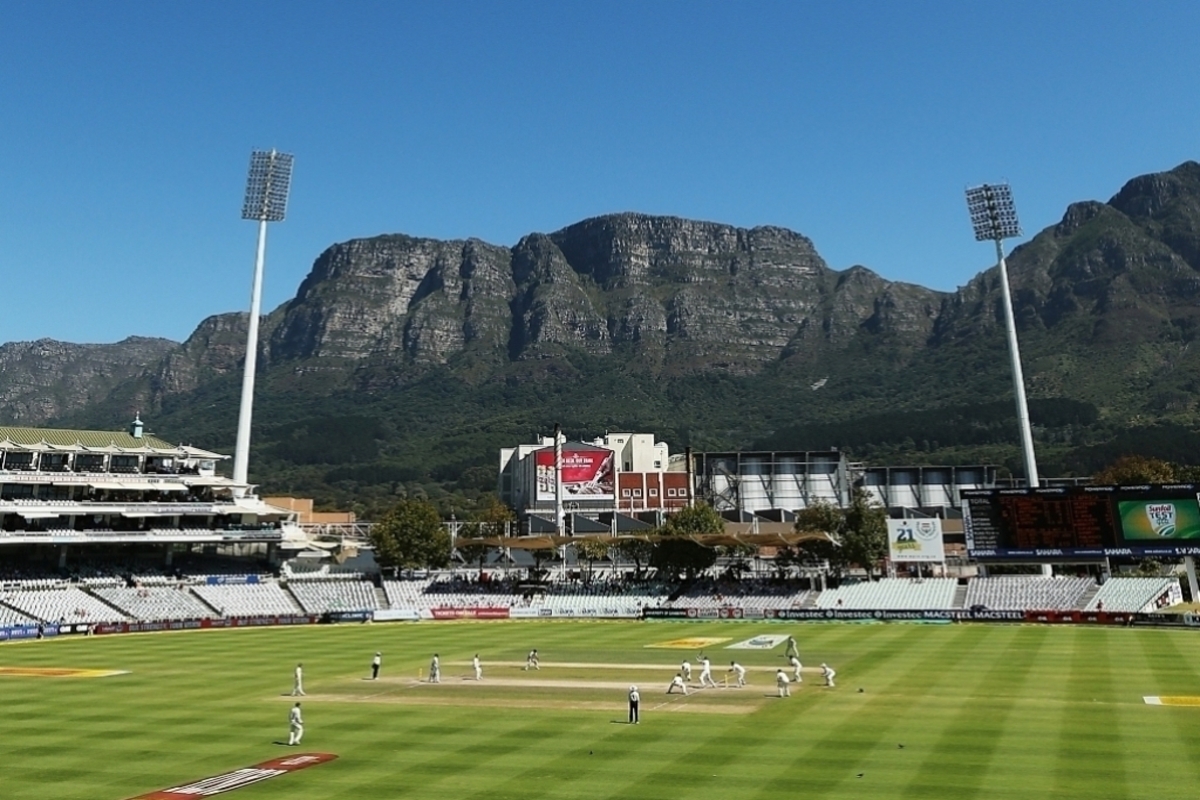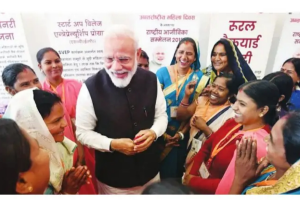Days after Rohit Sharma had criticised the ICC and the match referees for double standards in rating pitches after leading India to a series-levelling victory in the second Test against South Africa that merely lasted five sessions on a treacherous Newlands pitch, the International Cricket Council on Tuesday rated the pitch as “unsatisfactory” and docked one demerit point.
The decision was made under the ICC Pitch and Outfield Monitoring Process after the match referee Chris Broad submitted his report, expressing concerns of the match officials and after consultations with captains Dean Elgar and Rohit Sharma, both of whom felt that the pitch was below standard.
“The pitch in Newlands was very difficult to bat on,” Broad said.
“The ball bounced quickly and sometimes alarmingly throughout the match, making it difficult to play shots. Several batters were hit on the gloves and many wickets also fell due to the awkward bounce,” he added.
The Cape Town Test had wrapped up in 642 balls overall, thereby earning the title of the shortest completed Test match ever. India claimed victory by seven wickets. In the first innings, Mohammed Siraj’s 6 for 15 helped the visitors skittle South Africa for 55, while India managed to take a 98-run lead on the back of their 153 all out. It was also the first instance when a team lost six wickets without the addition of a single run, as India slipped from 153 for 4 to 153 all out.
South Africa came out to bat a second time on the opening day, and Aiden Markram curbed his natural instincts to score a brilliant counter-attacking 7th Test century but found very little support from the other batters, thanks to another six-wicket burst, this time from Jasprit Bumrah, leaving India with a target of 79 runs for their first ever win in Cape Town on nine tours to the Rainbow Nation in three decades.
Moments after winning the Test on the treacherous surface inside two days, Rohit termed the pitch as ‘dangerous’ but at the same time said he didn’t mind playing on such pitches as long as “everyone keeps their mouth shut in India and don’t talk too much about Indian pitches.”
“I don’t mind being on pitches like this as long as everyone keeps their mouth shut in India and no one is talking about the pitches there,” Rohit had said after the match.
“Yes it is dangerous, but you come here (South Africa) to challenge yourself and you must face up to it. So, and when people come to India, it is again pretty challenging as well. Look, when you are here to play Test cricket, we talk about Test cricket, the ultimate prize, Test cricket being the pinnacle and stuff like that. I think it’s important that we also stand by it.”
“When you are put up against a challenge like that, you come and face it. That’s what happens in India, but, in India on day one, if the pitch starts turning, people start talking about ‘Puff of dust! Puff of dust!’ There’s so much crack here on the pitch. People are not looking at that,” he added.
Rohit further went on to question the process of rating pitches, while raising a valid point on why a pitch that turns from day one is rated inferior to the one that seams from ball one.
“Honestly, I would like to see how the pitches are rated. And in India as well, we know that the conditions in India will spin without a doubt, but obviously people don’t like it because it spins from day one. But that’s not the point. If the ball seams from ball one, that’s okay, right, for everyone? That’s not fair. The ball starts spinning from ball one, it should be okay, in my opinion,” he said,” Rohit said while urging the global cricket governing body to be neutral in rating pitches.
“Otherwise, you stay neutral, and you start rating these kinds of pitches also bad, because if you want the ball only to seam and not turn, in my opinion, that is absolutely wrong. So that’s my judgment, that’s my opinion on it. I’ll stick by it because I’ve seen enough of cricket now and I’ve seen enough of how these match referees and the ICC look into these ratings. I have no issues in how they want to rate, but stay neutral to everything that you do,” he added.
CSA has 14 days to appeal against sanction
Cricket South Africa has a 14-day window to appeal against the sanction. As per the ICC Pitch and Outfield Monitoring Process, if a pitch or outfield is rated as substandard or unsatisfactory, that venue is slapped with demerit points. One demerit point is awarded to venues whose pitches and outfields are rated by the match referee as unsatisfactory.
If a venue reaches six demerit points, it is suspended from hosting any international cricket for 12 months. The penalty is 24 months in case of 12 demerit points. These points remain active for a rolling five-year period.











